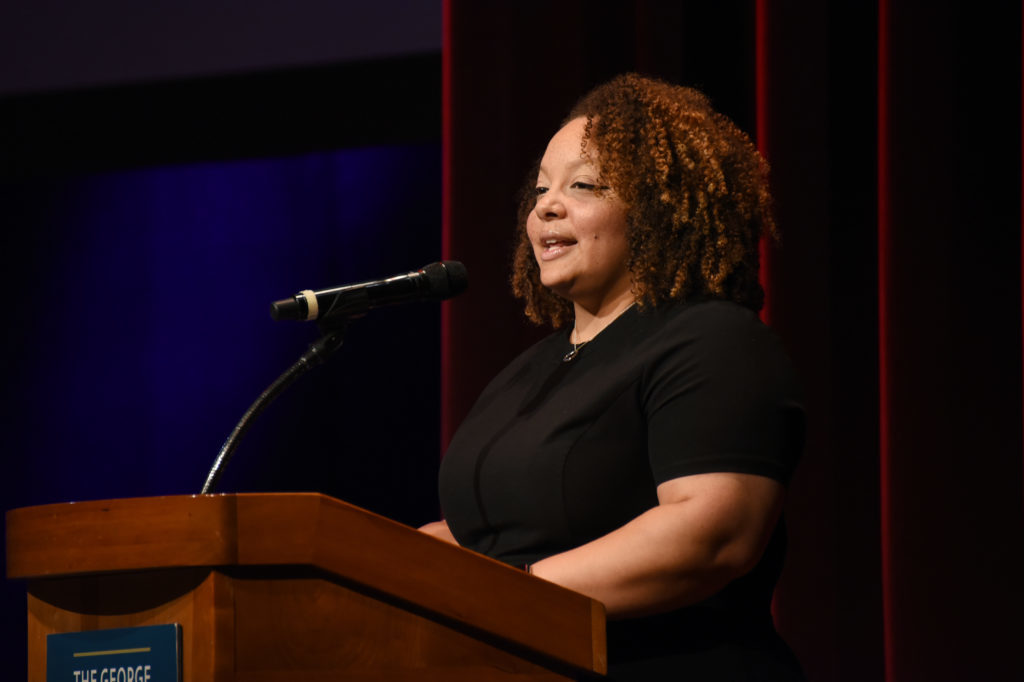Students enrolled in a new course this fall will explore the intersection of black feminist writings and pop culture.
Jordan West, the director for diversity and inclusion education, is teaching a course titled Black Feminism for undergraduate and graduate students this semester. West said the course, listed under the Women’s, Gender and Sexuality Studies Program, will focus on topics surrounding black feminist theory, like education and religion, and help students understand the “complexity” of experiences that black women face regularly.
“This course will always strive to affirm black women as enough, as knowers of their lived experiences and as owners of their body and mind,” West said in an email.
West said students will review the writings of black feminists like Maya Angelou while studying black feminism in pop culture through artists like Beyoncé. She said WGSS director Kavita Daiya invited her this summer to teach the course, which West said has the “potential to impact society widely” both inside and outside the black community at GW and in the world at large.
West added that the class, the first offered at GW focusing specifically on black feminism in at least two academic years, is intended to be a “liberating, intentional and challenging experience” for students. She said all 20 seats in the class have been filled.
West said she hopes the course will push students through open discussion to build empathy, identify the issues affecting black women and think about how they can solve those issues, regardless of their own racial and gender identities.
“Blackness and woman-ness are both on a spectrum, and students will experience the unique and dynamic complexity of black women through this course,” she said.
She said “leading scholars” in black feminist theory have been invited to visit the class throughout the semester. She did not elaborate further about who has been invited and whether they have confirmed if they will attend the class.
She said the course will allow students to learn about how black feminism is integrated into pop culture while learning about the movement’s history, like the Combahee River Collective, a black feminist organization that was active in the 1970s.
Experts said West’s new course will provide students with a broader perspective of the intersection between feminism and race.
Stephanie Smith, a professor of English at the University of Florida who specializes in feminist theory, said the individual fields of black and feminist studies do not completely explain the experiences of black feminists, which is why a class teaching both together is “enlightening” for those who do not identify as black.
“Only one vector of identity is never going to give anyone a complete picture of what it means to be embodied within a socio-historical and political matrix,” Smith said in an email.
Smith said the emergence of movements like Black Lives Matter and #MeToo increases the course’s relevance in today’s political climate. She said recent attacks by white supremacists, like the 2015 shooting at a black church in Charleston, S.C., highlight the need to develop empathy for what black women experience.
“The future belongs to the compassionate and the informed, always, at least in the long run,” she said.
Kabria Baumgartner, an assistant professor of American studies at the University of New Hampshire, said the course could expose students to a wide range of ideas, like intersectionality, that originated from black feminist thinkers.
“Intersectionality is a concept that is often used now, but in such a class, students would learn that Kimberlé Crenshaw, a brilliant black woman legal scholar, coined this term, and that the concept – though not the term actually – circulated among black women activists as far back as the early 19th century,” she said in an email.
Baumgartner said the course could explain the “crucial” role of black female activism in the ratification of the 19th Amendment to the U.S. Constitution, which guaranteed women’s suffrage, as the country approaches the ratification’s centennial next year.
“It is important to celebrate this milestone while also acknowledging that the women’s suffrage movement splintered over the issue of race,” she said.
Logan Brown, the co-president of Black Women’s Forum, said the class is an “opportunity of exposure” for students to understand the history of black women in the United States and the current issues they face, like their lack of recognition in the media.
“It creates a new level against the challenge of making sure that intersectionality is clearly represented and is equitable and accessible,” she said.




